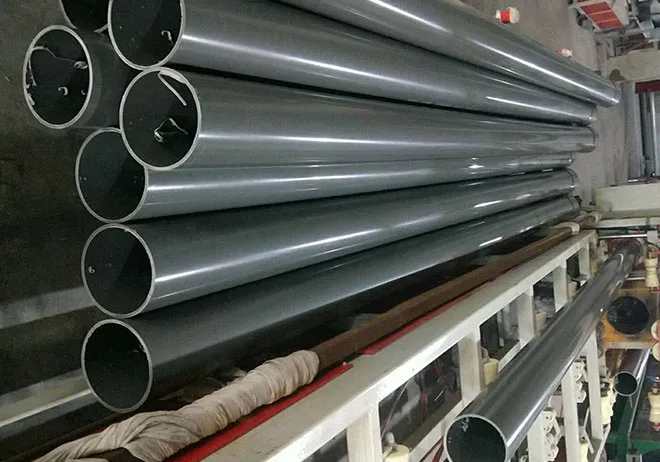Sep . 27, 2024 19:52 Back to list
High-Density Polyethylene Pipe Applications and Manufacturing Insights
HDPE Pipe Use and Manufacturing A Comprehensive Overview
High-Density Polyethylene (HDPE) pipes have gained widespread popularity across various industries due to their exceptional properties and versatility. As a durable, lightweight, and corrosion-resistant material, HDPE is the material of choice for numerous applications, including water supply, gas distribution, sewage, and agricultural uses. This article explores the manufacturing processes, applications, and advantages of HDPE pipes, providing insights into why they are preferred in modern construction and infrastructure projects.
Manufacturing Process
The manufacturing of HDPE pipes begins with the procurement of high-density polyethylene resin, which is derived from petroleum. The process consists of several stages, including
1. Resin Preparation The HDPE resin is processed through extrusion. This involves melting the resin pellets and pushing them through a die to create the desired pipe shape and diameter.
2. Cooling and Sizing After extrusion, the newly formed pipe is cooled using various methods, including water baths or air cooling. Once it has cooled sufficiently, the pipe is cut to specified lengths.
3. Quality Control Every batch of HDPE pipes undergoes rigorous quality control tests to ensure they meet industry standards. Parameters such as pressure resistance, wall thickness, and overall integrity are measured to guarantee durability and reliability in various applications.
4. Packaging and Distribution Finally, the finished pipes are packaged for distribution, ensuring they remain undamaged during transport. Manufacturers often collaborate with suppliers and logistics partners to ensure timely delivery across regions.
Applications of HDPE Pipes
HDPE pipes are used in a multitude of applications due to their adaptability and robust characteristics. Some common uses include
- Water Supply Systems HDPE pipes are often used for drinking water supply lines as they do not contaminate the water and have a low friction coefficient, ensuring efficient flow.
- Wastewater and Sewage Their resistance to chemicals and corrosion makes HDPE pipes ideal for transporting wastewater and sewage, ensuring long-term durability without leakage.
hdpe pipe use manufacturer

- Gas Distribution Due to their high strength and flexibility, HDPE pipes are commonly used for natural gas and other gaseous fuel distribution systems
.- Irrigation In agriculture, HDPE pipes are vital for irrigation systems, providing efficient water distribution to crops while minimizing evaporation and runoff.
- Telecommunication HDPE is also used for protective conduits in telecommunication networks, safeguarding fiber optic cables from environmental factors.
Advantages of HDPE Pipes
The growing preference for HDPE pipes in various sectors can be attributed to their many advantages
- Durability HDPE pipes have a long service life, often exceeding 50 years. They can withstand extreme temperatures and pressures, making them ideal for a range of applications.
- Corrosion Resistance Unlike traditional metal pipes, HDPE pipes do not rust or corrode, ensuring reliable performance in harsh environments.
- Flexibility HDPE pipes are lightweight and flexible, which facilitates easier installation and transportation, reducing labor costs and time.
- Environmental Impact HDPE is 100% recyclable, contributing to sustainability. Many manufacturers recycle HDPE materials in their production process, reducing waste and environmental footprints.
- Cost-Effectiveness Although the initial investment might be higher than some traditional materials, the long-term cost benefits due to reduced maintenance and increased longevity make HDPE a smart choice.
Conclusion
As industries seek more efficient, durable, and sustainable solutions, the use of HDPE pipes continues to expand. Their manufacturing process, adaptability in applications, and various advantages over traditional materials highlight why HDPE is becoming the preferred choice in modern infrastructure. The future of HDPE pipes looks promising, with continuous advancements in technology and material science paving the way for even more innovative applications. As manufacturers strive to meet the growing demand, HDPE pipes will undoubtedly play a pivotal role in shaping a sustainable and technologically advanced future.
-
High-Quality PVC Borehole Pipes Durable & Versatile Pipe Solutions
NewsJul.08,2025
-
High-Quality PVC Perforated Pipes for Efficient Drainage Leading Manufacturers & Factories
NewsJul.08,2025
-
High-Quality PVC Borehole Pipes Durable Pipe Solutions by Leading Manufacturer
NewsJul.08,2025
-
High-Quality PVC Borehole Pipes Reliable PVC Pipe Manufacturer Solutions
NewsJul.07,2025
-
High-Quality UPVC Drain Pipes Durable HDPE & Drain Pipe Solutions
NewsJul.07,2025
-
High-Quality Conduit Pipes & HDPE Conduit Fittings Manufacturer Reliable Factory Supply
NewsJul.06,2025

